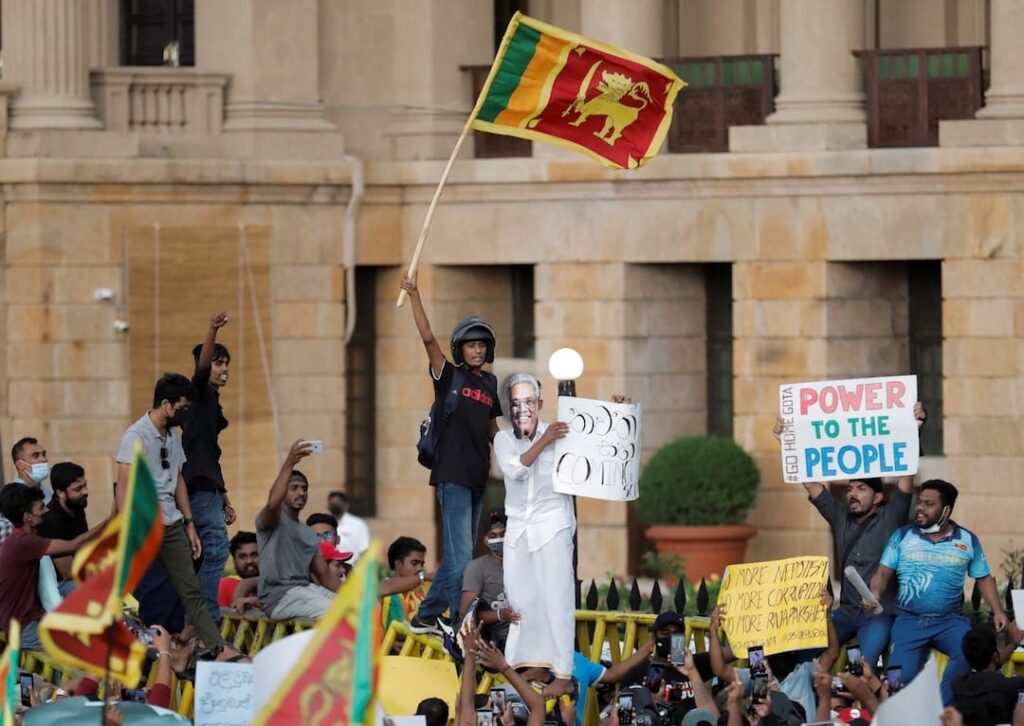The content provided is an article discussing the crisis in Venezuela, focusing on its political turmoil, economic collapse, and regional implications. It highlights the rise of authoritarianism under President Hugo Chávez and his successor Nicolás Maduro, leading to widespread protests and demands for democratic reforms. The article also addresses the catastrophic economic collapse, with hyperinflation, unemployment, and poverty becoming rampant. The collapse of the healthcare system and scarcity of basic necessities has resulted in a humanitarian crisis and a massive exodus of Venezuelans to neighboring countries. The regional implications include the strain on neighboring economies and concerns about security and crime. The article concludes by emphasizing the need for a comprehensive and collaborative approach to resolving the crisis and restoring stability and prosperity to Venezuela and the wider region.
Venezuela in Crisis: Political Turmoil, Economic Collapse, and Regional Implications
Introduction
Venezuela, once hailed as one of the wealthiest nations in South America, is now in the midst of a severe crisis. This crisis has been characterized by political turmoil, economic collapse, and regional implications. In recent years, the nation has faced significant challenges that have led to widespread unrest and a rapidly deteriorating social and economic situation. In this article, we will explore the various factors contributing to Venezuela’s crisis and analyze its implications not only for the Venezuelan people but also for the wider region.
Political Turmoil
The political turmoil in Venezuela can be traced back to the rise of the late President Hugo Chávez. His socialist policies and populist rhetoric initially gained popularity among the working class and marginalized communities. However, over time, his regime became increasingly authoritarian, suppressing dissent, curtailing press freedom, and centralizing power.
Chávez was succeeded by Nicolás Maduro, who continued his predecessor’s policies and further consolidated power. Maduro’s regime has been marred by allegations of electoral fraud, human rights abuses, and corruption. As a result, the country has been engulfed in protests, with the opposition demanding democratic reforms and the resignation of Maduro.
Economic Collapse
The economic collapse in Venezuela has been catastrophic. The country, once heavily dependent on oil revenues, suffered greatly when global oil prices began to plummet. Mismanagement of resources and over-reliance on oil exports left the Venezuelan economy extremely vulnerable. Hyperinflation, skyrocketing unemployment, and widespread poverty have become the norm.
Basic necessities, such as food and medicine, have become scarce, leading to a humanitarian crisis. The collapse of the healthcare system has resulted in the spread of preventable diseases and a significant increase in infant and maternal mortality rates. The situation has forced millions of Venezuelans to flee the country, seeking refuge in neighboring nations.
Regional Implications
The crisis in Venezuela has significant regional implications. The influx of Venezuelan migrants has put immense pressure on neighboring countries, particularly Colombia, Brazil, and Ecuador. These countries have had to provide support and resources to accommodate the refugees, straining their own economies and social systems.
Furthermore, the political instability in Venezuela has raised concerns about regional security. Disruptions in the country’s governance and law enforcement institutions have created fertile ground for criminal organizations, including drug traffickers and organized crime groups, to operate freely. The escalation of violence and insecurity poses a threat not only to Venezuela but also to neighboring countries.
International Response
Internationally, there have been mixed responses to the crisis in Venezuela. Some countries, such as the United States, have condemned Maduro’s regime and imposed sanctions in an attempt to pressure him into democratic reforms. Other countries, such as Russia and China, have supported Maduro, primarily to safeguard their economic interests in the region. The political polarization among world powers has further complicated the resolution of the crisis.
Conclusion
Venezuela’s crisis is multi-faceted, combining political, economic, and humanitarian challenges. The political turmoil, economic collapse, and regional implications have created a complex situation that requires a comprehensive and collaborative approach. Efforts must be made to assist the Venezuelan people and find a peaceful resolution to the crisis that not only restores democracy but also helps rebuild the economy and address the humanitarian needs of the population. The international community needs to unite and work towards a sustainable solution that brings stability and prosperity to Venezuela and the wider region.
